There were ‘failings’ in the provision of care to former England cricket legend Graham Thorpe in the months before he died, a coroner has said.
The 55-year-old died on the morning of August 4, 2024, after being struck by a train at a railway station in Surrey, with a coroner ruling the death a suicide.
Mr Thorpe was not perceived by healthcare professionals to be in a ‘crisis situation’ despite being told he had asked his wife, Amanda Thorpe, ‘for help to end his life’ weeks before he died, an inquest heard today.
The inquest at Surrey Coroner’s Court in Woking heard he had ‘spiralled into depression‘ after losing his job as a batting coach in 2022, and he had tried to take his own life on another occasion.
Coroner Jonathan Stevens said that the last time Mr Thorpe was seen in person by healthcare professionals was on March 20, 2024.
He said: ‘In my judgment, there were shortcomings in the care that should have been provided to Graham in the last four months or so of his life.’
He added ‘there were failings in the provision of his care’ but said he cannot, on the evidence, conclude the failures were gross and so he can not conclude that if it were not for the failures, Mr Thorpe would not have died.
The coroner said: ‘It’s clear there were shortcomings in his care. If he had been seen in those last four months, particularly after that incident on June 28, I cannot say whether it would or would not have made any difference.’
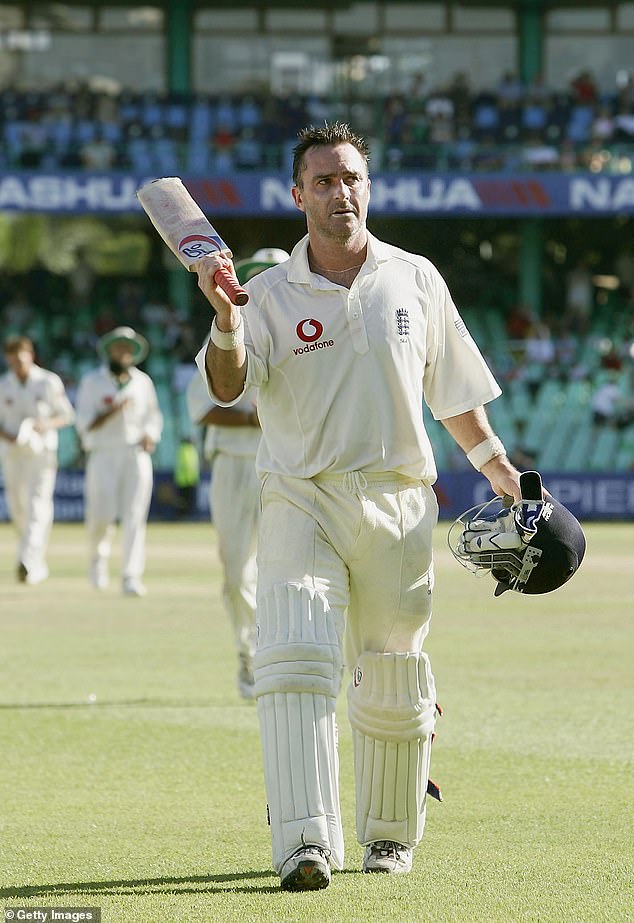
Former England batsman Graham Thorpe, 55, died after being struck by a train near his home in Surrey in August last year
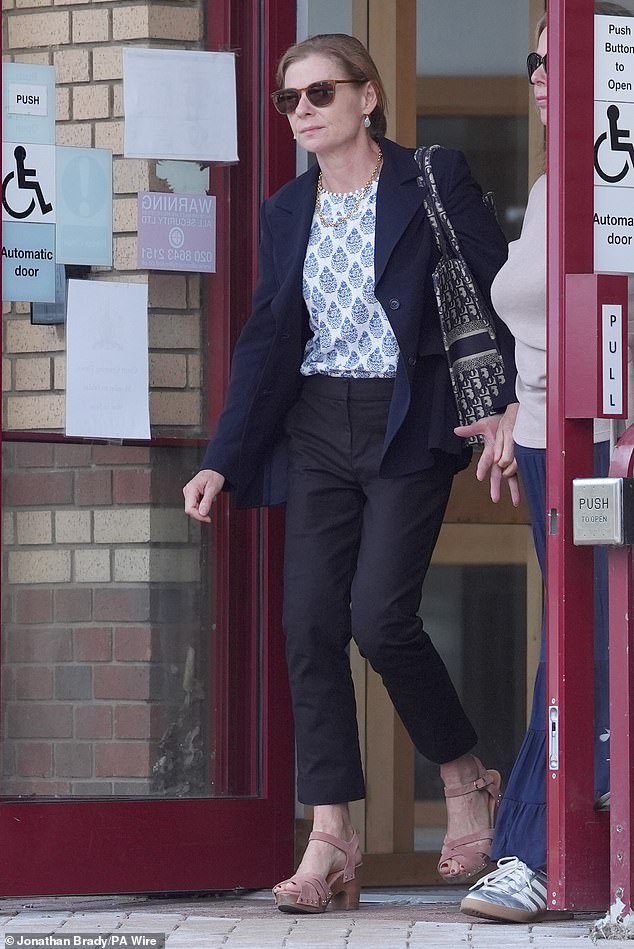
Amanda Thorpe outside Surrey Coroner’s Court, Woking, for the inquest into the death of her husband, former England cricketer Thorpe
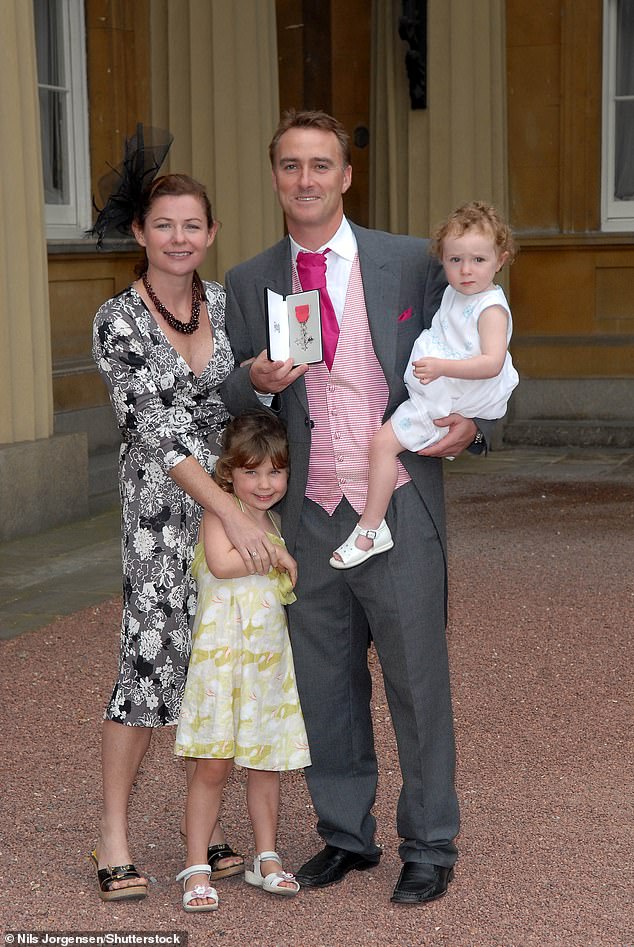
Thorpe, pictured at an investiture ceremony at Buckingham Palace in 2007, accompanied by his wife Amanda, and children Kitty (three) and Emma (20 months)
After missing an appointment with the community mental health team on June 28 2024, care co-ordinator Katie Johnson spoke to Mr Thorpe’s wife on the phone, who told her he was ‘constantly asking for help to end his life’, the court heard.
Ms Johnson then spoke to Mr Thorpe who told her he ‘hadn’t been out for a while’ and ‘didn’t see the point of being here’ but had no immediate plans to act on suicidal thoughts, the inquest heard.
An investigation was carried out by Surrey and Borders Partnership NHS Foundation Trust after his death, which details a number of findings and recommendations.
Dr Shriti Burgul, a consultant psychiatrist who reviewed the investigation’s report before it was finalised, told the court on Friday that one of the findings was that ‘it was noted that Graham’s presentation at his appointment on June 28, 2024, was in keeping with previous presentations and not perceived by the team as a crisis situation’.
Given the conversation was over the phone, the psychiatrist was asked if it would have been appropriate to arrange to see Mr Thorpe very quickly.
She said ‘in the wisdom of hindsight, then yes, a home visit would have been clinically indicated’, adding ‘I think the team’s view at that point was this was part of his chronic presentation’.
Dr Burgul was asked if arranging an appointment for two weeks was an appropriate response and she said in the absence of Mr Thorpe expressing ‘active intent’ or an ‘active plan’ it would be appropriate to allow two weeks.
She said Mr Thorpe was not at the level of requiring intervention from the home treatment team.
The psychiatrist was asked if there was any evidence that if there had been an in-person assessment for Mr Thorpe, there would have been a different outcome, and she replied ‘no’.
The investigation noted that a letter from when Mr Thorpe was discharged from a private hospital in July 2022 said a neuropsychologist should be identified to provide further support, the inquest heard.
This was never done by the private provider or the GP, and a risk panel advised it should be explored in June 2024, Dr Burgul said.
Asked whether there was any neuropsychological impact that could have affected the cricketer’s ability to engage in appointments, given he missed some, the psychiatrist said ‘it’s a possibility, yes’.
Mr Thorpe’s cause of death was recorded by a pathologist as multiple injuries, the coroner said.
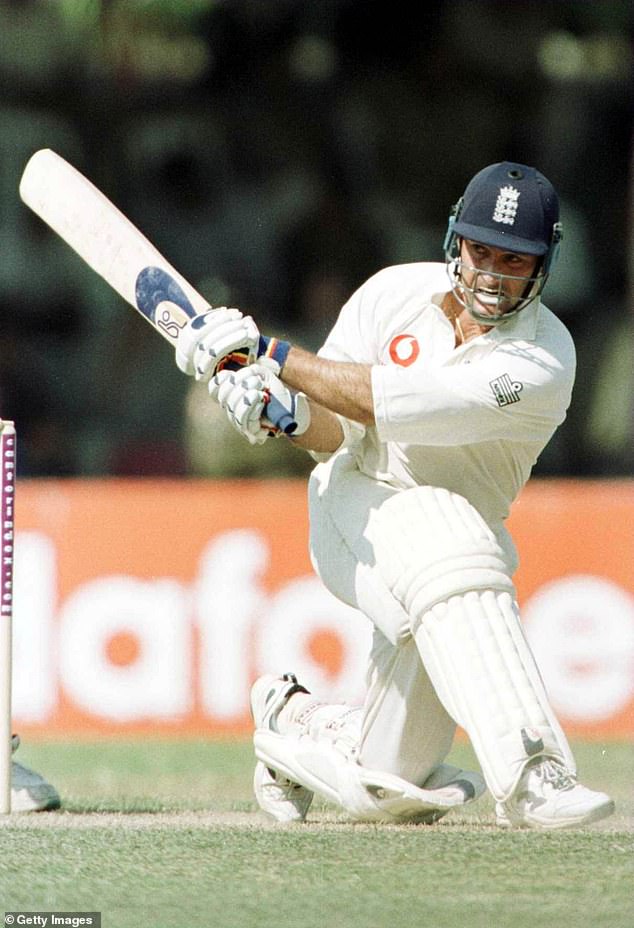
Thorpe played 100 Tests and 82 ODIs for England between 1993 and 2005, and was a coach during the 2021-22 Ashes series in Australia, which England lost 4-0
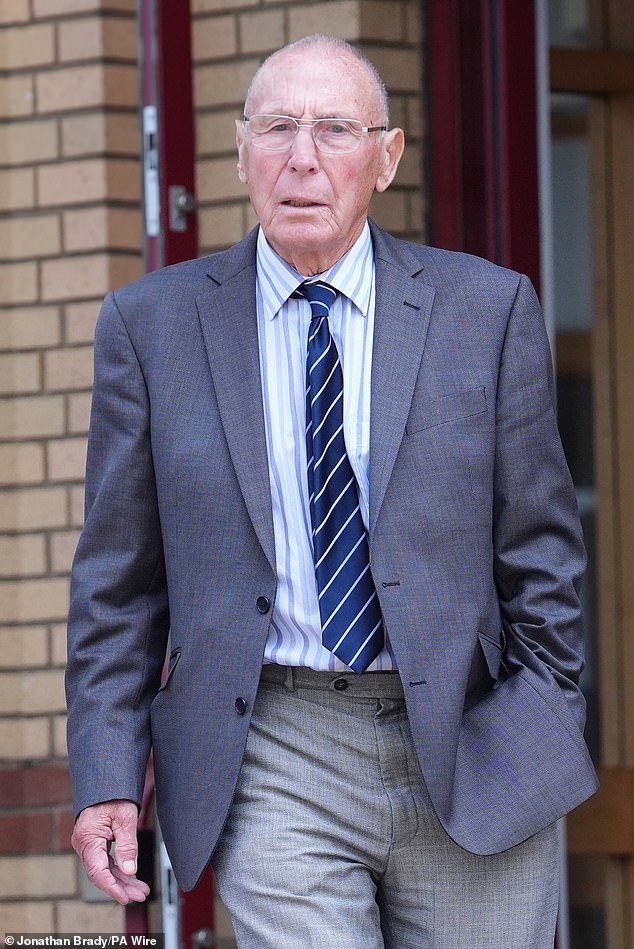
Geoff Thorpe outside Surrey Coroner’s Court, Woking for the inquest into the death of his son, former England cricketer Graham Thorpe
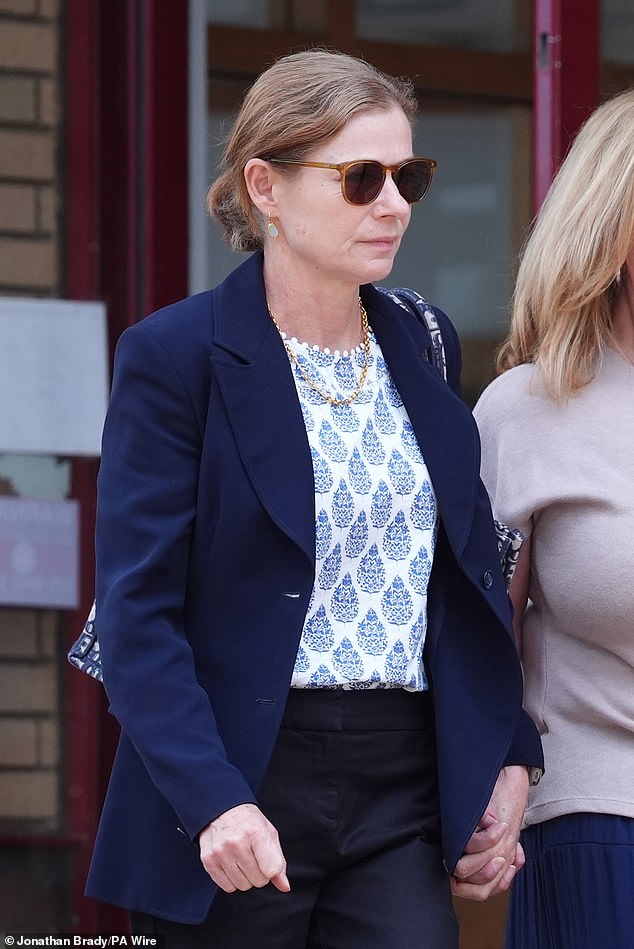
After missing an appointment with the community mental health team on June 28 2024, care co-ordinator Katie Johnson spoke to Mr Thorpe’s wife (pictured) on the phone, who told her he was ‘constantly asking for help to end his life’, the court heard
The Surrey batsman was not seen once in the final four-and-a-half months of his life by the psychiatrist in charge of his care, and twice at all by any of his local support team.
And the team admitted Thorpe’s lack of engagement with the mental health professionals – missing six appointments in two months – was as a result of his worsening depression.
Thorpe’s depression remained classified as ‘moderate’ – the middle of three in the seriousness scale – right until his death in August last year, in spite of showing clear signs that his condition was worsening.
Medical notes described how Thorpe felt ‘shame and humiliation going from a high-profile, knighted captain of the England cricket team to then publicly losing his position’ and a failed suicide attempt months after the sacking from the ECB in 2022, so he ‘certainly has a worrying propensity for significant risk to self’.
An assessment by his new mental health care coordinator in May that year revealed Thorpe ‘at times presents as high risk of suicide’, which the Thorpe family’s lawyer Mark McGhee said this demonstrated the fallen sportsman was ‘crying out for a face-to-face assessment’.
Yet Dr Amirthalingham Baheerathan, Thorpe’s consultant psychiatrist at Surrey and Borders Partnership NHS Foundation Trust, told the inquest he did not think it was necessary to conduct a home visit.
The inquest previously heard that while on tour in Australia, there was an ‘incident involving a video that was taken that had adverse publicity’.
Mr Thorpe shared a video with some friends which was leaked, and the incident was ‘blown out of all proportion’, leaving Mr Thorpe ‘distraught’, Mrs Thorpe said.
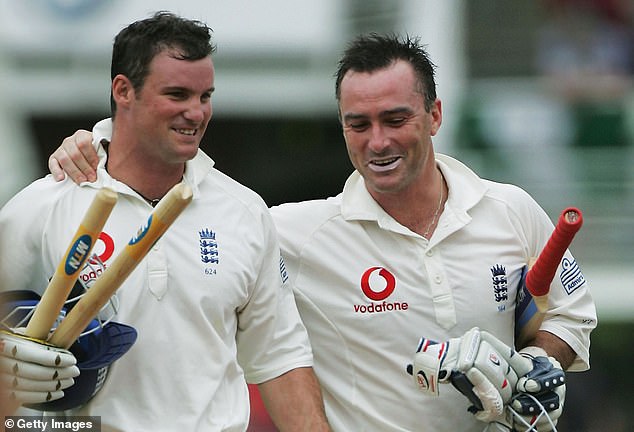
Surrey lefthander Thorpe with teammate Andrew Strauss during the Test Match between South Africa and England in 2004 in Port Elizabeth
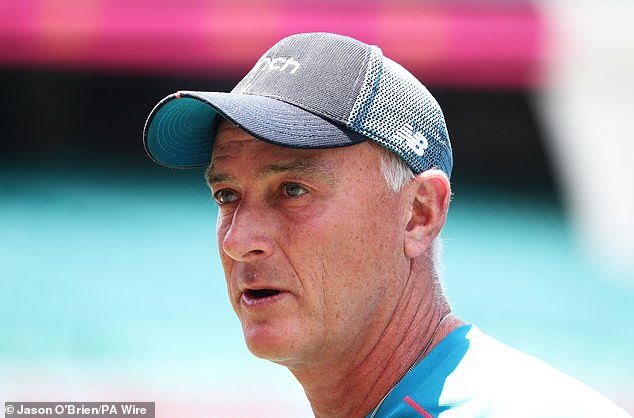
An inquest at Surrey Coroner’s Court in Woking heard Thorpe had ‘spiralled into depression ‘ after losing his job as a batting coach in 2022
According to reports at the time, the video, filmed after a dismal Ashes series which England lost 4-0, showed Tasmanian police breaking up a drinking session involving both England and Australia players.
Mrs Thorpe described it as a ‘horrible’ time, and said the later termination of his employment with the England and Wales Cricket Board was a ‘real shock to Graham’, which was the ‘start of the decline of his mental health’.
Mr Thorpe was a mainstay in the England set-up for many years, first as a batter between 1993 and 2005 before spending 12 years in coaching roles.
During a distinguished international career, he struck 16 Test hundreds for England, including a debut century against Australia at Trent Bridge in 1993, and represented his country 182 times in all formats.
The former batsman, who spent his entire county career with his home club Surrey, will be honoured during the final Test match of England’s series against India at The Oval on August 1 to raise awareness of mental health.
The inquest continues.
For confidential support, call the Samaritans on 116123 or visit samaritans.org.












